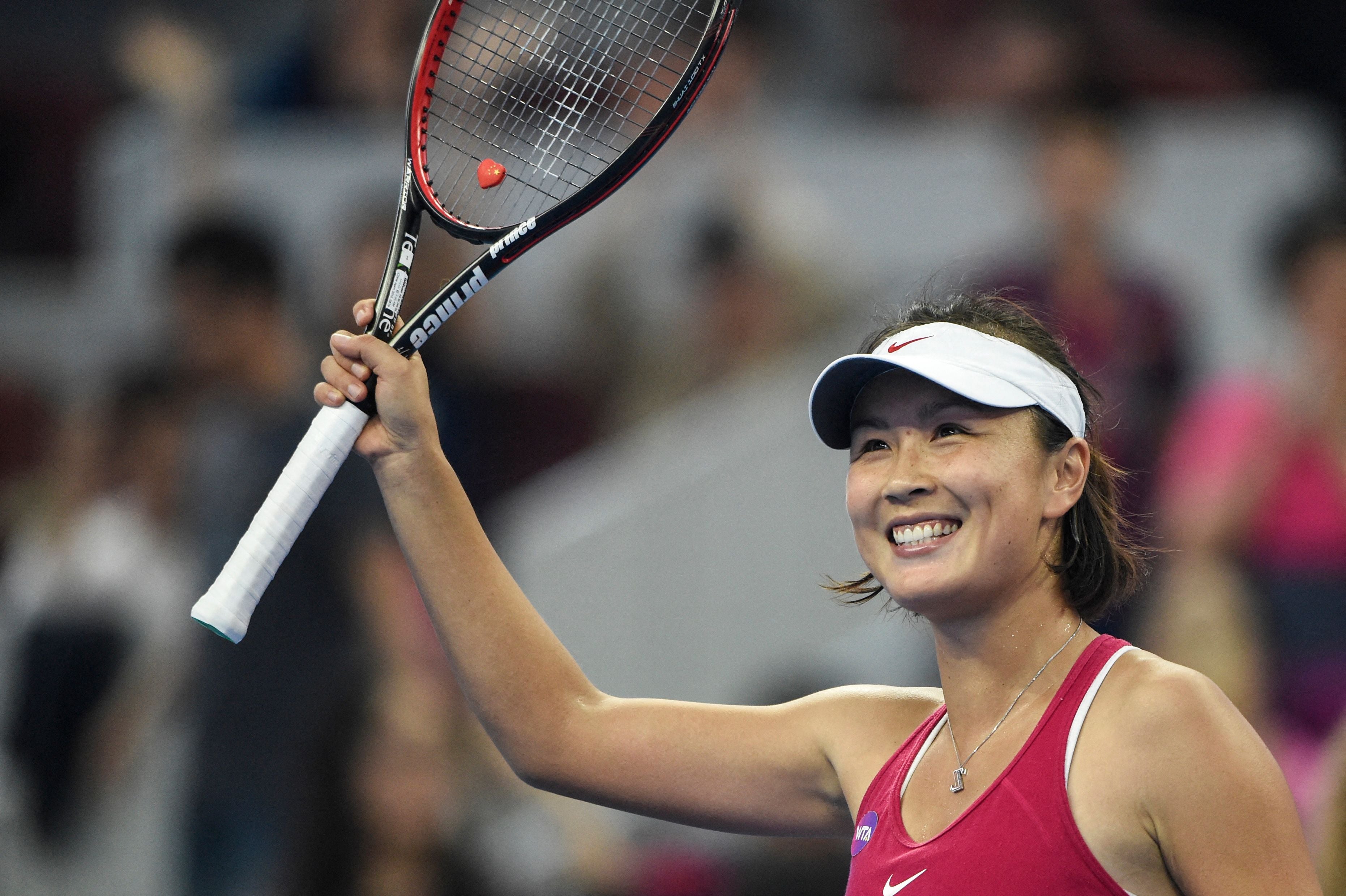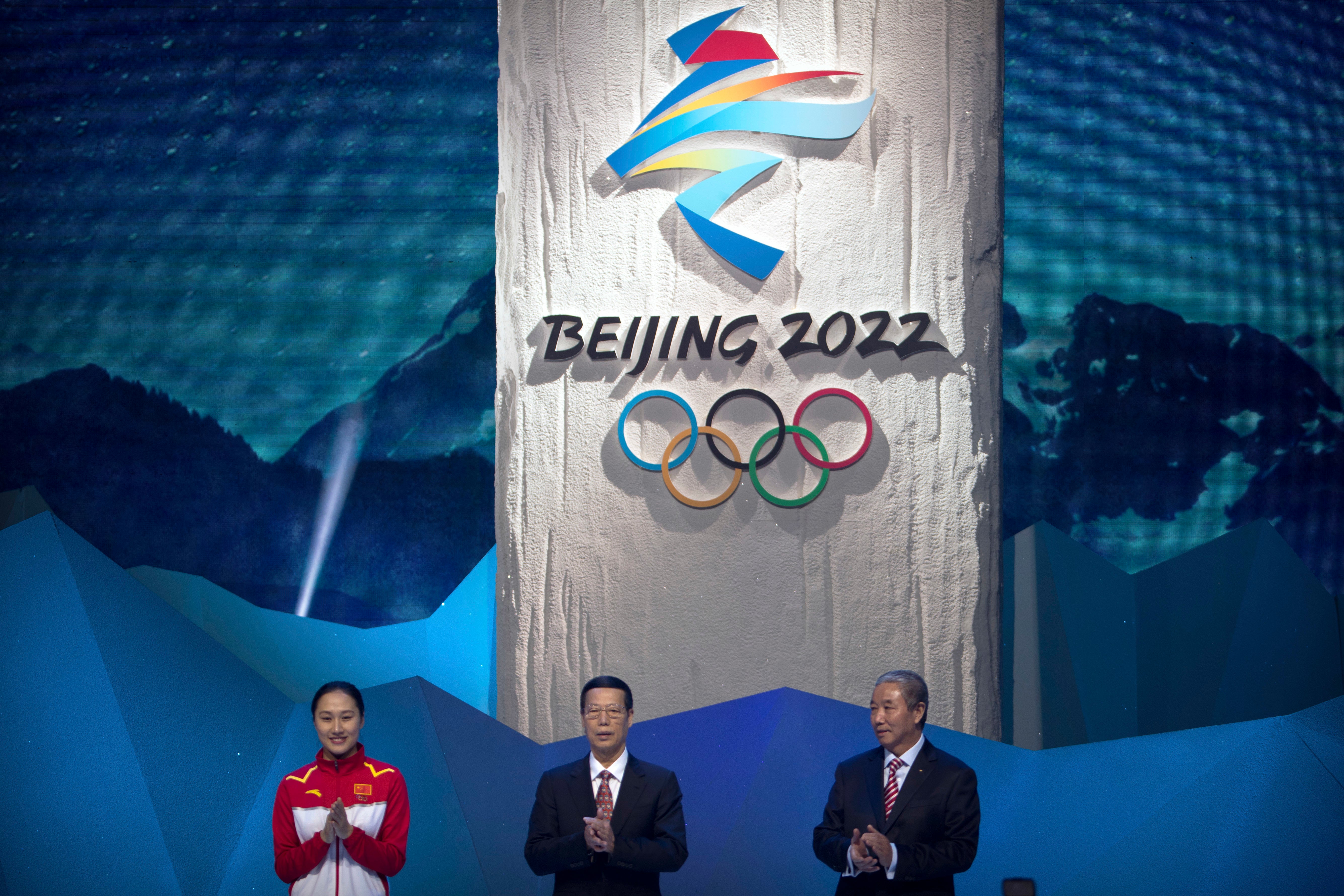‘Women are tough. She will survive’: How one sexual assault claim turbocharged China’s #Metoo movement
Experts say Peng Shuai’s explosive revelation has revealed the ‘hypocrisy and corruption’ of senior officials, reports William Yang


After Chinese tennis star Peng Shuai accused former Chinese Vice Premier Zhang Gaoli of sexually assaulting her in a deleted post on Weibo, the incident has renewed discussion about the #Metoo movement in China, which has been the target of a government-led crackdown over the last few years.
Within 20 minutes of making the revelation, Peng’s post disappeared from the popular microblogging site, and relevant keywords and discussion also disappeared. Experts say the immediate reaction from the Chinese government’s censorship regime shows that Beijing is trying to prevent any information about the scandal from being spread further on the internet.
“It is a very normal reaction from the Chinese Communist Party (CCP), because they don’t want any scandal about current or former high-level officials to be exposed or discussed by the general public,” said Teng Biao, a Chinese human rights lawyer and a Pozen visiting professor at the University of Chicago.
Lu Pin, a prominent Chinese feminist activist, wrote in a post published by the Diplomat that even though Peng’s revelation is only the tip of an iceberg, it does expose the real life of high-level Chinese officials, which she describes as “hypocritical and corrupted”.
“Peng’s disclosure was soon censored in China, but the censorship only helps to reveal the fear of top Chinese leaders, a fear that would have only been imagined but now put on the stage through silencing the voice in seconds in the witness of many,” she wrote.

Teng points out the case is a significant event for Chinese feminist activists because it marks the first time a government official at the highest level of China’s political system was publicly accused of sexual assault. “The case elevates the #Metoo movement in China to a new level because it is known by more Chinese people,” he told The Independent.
Lu Pin argues that at the core of the #Metoo battle in China is the victims’ courage of speaking up about the truth, which she thinks is shaking up others in Chinese society. “Their disclosures have created a ripple effect, inspiring more victims to stand up and speak up compellingly,” she wrote.
Lu also points out that Peng’s revelation is highly consistent with the stories of other victims in the #Metoo cases, and she thinks it is important for the outside world to acknowledge the challenges that female victims need to undertake in order to reveal these experiences in public.
“We must recognise and acknowledge the daunting task they did: each individual works up to shake the society for the unspeakability and normalisation of sexual violence,” she wrote.
When the incident first went viral, some suspected whether Peng’s revelation was part of a factional struggle within the CCP, since it targets a former high-level government official. However, Teng Biao argues that unless there is clear evidence to make the suggestion, such speculation disrespects the female victims.
“It is belittling the #Metoo movement because such a speculation would suggest that Peng Shuai is manipulated by political power and that she lacks her own personality and free-thinking ability,” he told The Independent.
Lu Pin also thinks that it is very important not to view Peng’s case as “an affair” with a former government official, as it reveals a structure that normalises violence and makes the female victim look voluntary.
“This structure leaves survivors no space to tell their truth. It is irresponsible to talk about gender without bringing up power relations,” she wrote.

“It is truly heartbreaking to see that Peng Shuai, a most outstanding and independent Chinese woman, still had this experience. It’s a lesson for us: rights do not come with your career or the uplifting of your economic status. Rights come because you fight for them,” she added.
For most female victims in #Metoo cases, it is often hard to seek justice through China’s judicial system, as many institutions have become the Chinese government’s tool to suppress them, according to Teng Biao. “The Chinese government will use different channels to make sure that victims can’t seek justice,” he said.
In September, a court in Beijing ruled against Zhou Xiaoxuan, who became the face of China’s #Metoo movement after she accused a prominent TV host of harassment. The court claimed Zhou failed to produce enough evidence against the defendant, who had also sued her.
Lu Pin writes that since worry and fear are so common in the daily lives of Chinese people, she thinks it is important to focus on the ability of female victims in #Metoo cases to maintain the remaining space for them to keep making shocking revelations.
“In this process, more and more people have awakened and connected with each other, making their short lives meaningful. This is the most valuable part of #MeToo,” she argues. “As for Peng Shuai, I believe in her, too. Women are tough. She will survive.”






Join our commenting forum
Join thought-provoking conversations, follow other Independent readers and see their replies
Comments